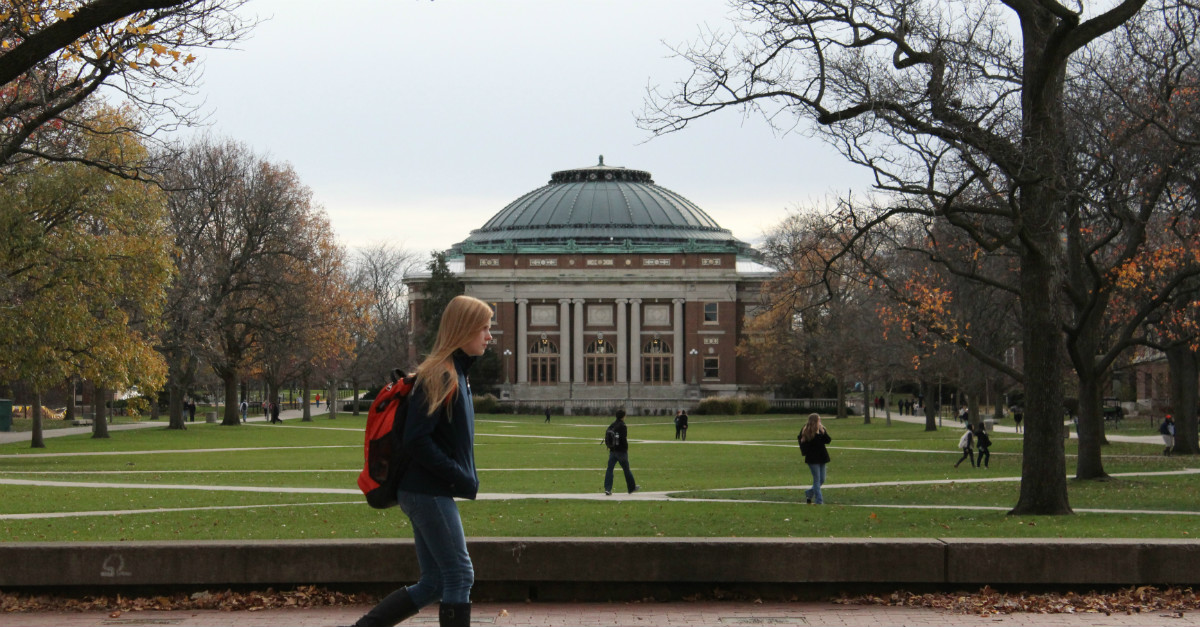Over the past couple years, universities across the country have sparked debate over freedom of speech, primarily if the speakers intentions revolve around disparaging various communities and cultures.
Videos by Rare
Much of the controversy has arisen out of conservative speakers (such as former Breitbart editor Milo Yiannopoulos and political commentator Ann Coulter) who have had to cancel university events after protests from demonstrators that claim these speakers only promote hate and should not be allowed the platform to spread their points of view.
RELATED: Joe Biden says liberals who want to suppress free speech have “very short memories”
Tensions on universities have only escalated, particularly at University of California-Berkeley, where protests erupted in rock throwing, broken windows, and bonfires earlier this year in protest against Milo speaking.
More locally, at DePaul in May of last year, protesters shut down a Milo event. This led to Chicago Tribune writer Eric Zorn to scribe an op-ed that prophetically said: “Fellow liberals: We can’t win, we won’t win, by trying to muzzle the opposition or drown them out with melodramatic umbrage. Not this fall. Not ever.”
Milo (yes, again) was scheduled to speak at the Patio Theater in November but planned protests and boycott of future Patio events led to that event being cancelled as well.
These types of protest has become known as the “Heckler’s Veto.” Now, the University of Illinois at Urbana-Champaign has taken steps to ensure that this informal veto cannot take place.
Beginning Friday, new guiding principles will be in place that outline the university’s outlook on free speech and of protests. “We welcome and encourage members to respond to speech with which they disagree by engaging in counter-speech of their own. But we will not condone shouting down or physically obstructing or threatening a speaker or the speaker’s audience.”
According to their guiding principles, the university believes that “an unyielding allegiance to freedom of speech – even controversial, contentious, and unpopular speech – is indispensable to developing the analytical and communication skills of our students and empowering all members of our university communities to be active and informed citizens.”
They also expect that this proclamation will be met with some backlash. “Even expression that is protected under the First Amendment can sometimes cause ill will and harm within an organization as large and diverse as ours. That is a price to be paid for a steadfast loyalty to free speech.”
What is unclear is how students will be disciplined should they part-take in protests that shut down or obstruct an event. But as University President Tim Killeen wrote, “The principles are rooted in current practices and provide touchstones to guide our future, not detailed policies to address every possible scenario we might face.”
RELATED: Echo chamber: College professor’s campus hate speech study shows extreme polarization
The guidelines also looked at how freedom of speech on campus intersects with civic engagement and globalization and immigration.
The guidelines have been in development since July of this year as a collaborative effort between trustees, students, faculty, staff, other top leaders of the university system.



